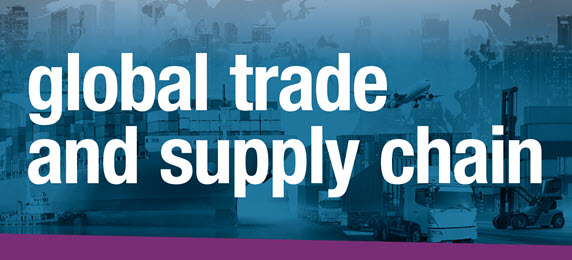
Trade and Tariffs Update: April 14, 2025
Recent tariff measures are requiring supply chains to maintain a higher level of data granularity, including detailed information on inputs and production. Importers must be prepared to document and support value content declarations with a level of specificity that may not have been previously required.
We encourage members to consult with their customs broker or trade counsel for further guidance and to ensure compliance with all applicable tariff programs.
Webinar Recording Available
The "Tariffs and Trade Update as of April 9, 2025" webinar recording is now available for Auto Care Association members. The session included a comprehensive overview of recent tariff actions, compliance tips, and strategies to mitigate impact.
China’s Tariffs Increased to 125%; Country-Specific Reciprocals Delayed but 10% Tariff in Effect for All
Effective April 10, the implementation of country-specific reciprocal tariffs (excluding China) has been suspended for 90 days until July 9, 2025. The 10% baseline tariff remains in effect and applies to imports from all countries. Mexico and Canada are covered under separate IEEPA tariffs and exempt from the reciprocal tariffs.
The 90-day pause does not apply to China, due to their retaliatory actions. China's reciprocal tariff rate has increased from the original 34% to 84% and now to 125%. In response to the reciprocal tariffs, China has raised its tariff rate to 125% on U.S.-origin goods.
According to U.S. Trade Representative Ambassador Jamieson Greer’s testimony at a U.S. House Committee on Ways and Means hearing last week, “nearly 50 countries have approached me to discuss the President’s new policy and explore how to achieve reciprocity. Several of these countries, such as Argentina, Vietnam, and Israel, have suggested they will reduce their tariffs and non-tariff barrier.”
Important Exemptions from Reciprocal Tariffs:
- Products subject to the auto and auto parts 232 tariffs.
- Products subject to the steel and aluminum 232 tariffs.
- Goods listed in Annex II, including copper, semiconductors, pharmaceuticals, lumber, critical minerals, and energy products.
- Goods from Canada and Mexico (covered under separate IEEPA tariffs).
- Certain Electronics (see below).
Based on guidance from Sandler, Travis & Rosenberg (ST&R), the U.S. Customs and Border Protection's documentation, auto parts subject to section 232 tariffs are not subject to reciprocal tariffs.
Electronics Exemptions
On April 12, the administration announced that smartphones, laptops, monitors and other electronic products are exempt from the reciprocal tariffs.
U.S. Department of Secretary Howard Lutnick shared that the exemptions are only temporary, noting that “all those products are going to come under semiconductors, and they're going to have a special focus type of tariff to make sure that those products get reshored.”
Drawback Availability
U.S. Customs and Border Protection (CBP) confirmed via CSMS notice on April 5 that drawback is available on reciprocal tariff duties.
White Paper
The Auto Care Association has published a reciprocal tariffs white paper that examines the history, rationale, and economic implications of reciprocal trade policies.
Stacking of Tariffs
The new reciprocal tariffs stack with:
- Section 301 tariffs
- IEEPA-based tariffs
- Standard MFN rates
However, reciprocal tariffs do not apply to:
- Products already subject to Section 232 tariffs on steel and aluminum
- Products already subject to Section 232 tariffs on autos, and auto parts
- Products from Mexico or Canada
**The HTS code must be included on the tariffs lists to be considered subject to the 232 orders. Not all auto parts are included on the tariff list.
Partial relief is available for products that contain at least 20% U.S.-origin content: tariffs will only apply to the non-U.S. value of the product.
Autos and Auto Parts Tariffs
The tariff on auto parts is scheduled to go into effect on May 3, 2025. The list of impacted HTS codes can be found in the Federal Register Notice, pages 11-12.
Heavy Duty Parts
According to the order, the 232 auto parts tariff applies to parts of “passenger vehicles (sedans, sport utility vehicles, crossover utility vehicles, minivans, and cargo vans) and light trucks.” The order does not mention parts for heavy duty application, even if the HTS code is included on the list.
USMCA Treatment
Auto parts that qualify for USMCA preferential treatment are currently exempt from the 25% tariff. The administration plans to implement a process to apply the tariff only to the non-U.S. content in qualifying auto parts. Details on this process will be published in a forthcoming Federal Register notice.
Read MoreDe Minimis Exemption Revoked for China and Hong Kong
As part of recent tariff orders, the de minimis exemption for shipments from China and Hong Kong has been revoked. All shipments, regardless of value, will be subject to the following duties:
Postal Shipments
Effective May 2, goods sent via international postal shipments, transportation carriers may elect to apply:
- a 120% duty (increase from 34% to 84% to now 120%); or
- a flat rate of $100 per item (increase from $25 to $75 to now $100)
Effective June 1, the flat rate per item rate increases to $200 (increase from $50 to $150 to now $200).
Non-Postal Shipments
Goods shipped through non-postal channels, all applicable duties will apply.
De minimis was previously eliminated through the IEEPA order on China but was delayed pending an implementation process.
Maritime and Shipbuilding Remedies
The Office of the U.S. Trade Representative (USTR) is currently reviewing public comments and economic studies as part of the Section 301 investigation into China’s maritime, logistics, and shipbuilding sectors.
During a House Ways and Means hearing (at 3:33:00), USTR Ambassador Greer shared that he anticipated a final decision on the shipbuilding remedies investigation “by the middle of this month.” Greer also shared that the agency did not intend to recommend implementing all the proposed measures and will select the most appropriate action.
Auto Care, along with a group of organizations, commissioned a study and submitted comments urging the administration to reconsider the proposed fees, due to concerns about increased costs, reduced competitiveness, and significant disruptions to domestics logistics and supply chain networks.
Pending Investigations to Watch
The administration is still reviewing several ongoing investigations that could result in further trade actions:

Angela Chiang, Director, International Affairs
Doing business across borders can be tough, especially now. My work centers around helping you explore new and emerging markets, finding new business partners and navigating trade policy. More About Me

As trade policies are updated and supply chain challenges continue, this section provides the latest information on how your business can navigate the changes.
More posts
Content
-
[WATCH] 2022 Business Outlook: Top Emerging Opportunities and Challenges
February 4, 2022This webinar explores need-to-know emerging opportunities and challenges for the coming year: current status of supply chain issues and what to expect in the year ahead and more.
-
[REPORT] 2022 Auto Care Factbook
May 6, 2021The only publication of its kind, this report includes data on light vehicle sales volume for key aftermarket product categories, sales percentage growth, light vehicle product growth and much more.
